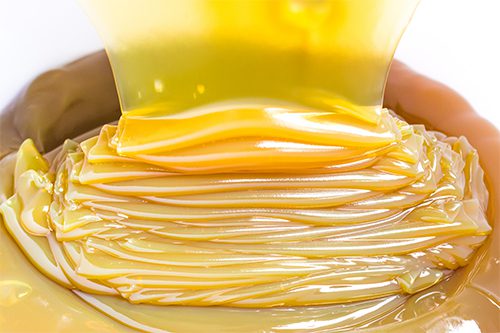Grease vs Oil

Two main types of industrial lubricants are oils and greases. Both aim to lubricate equipment and prevent damage that happens from metal to metal contact. However, there are a few key differences in how they are used. To put it simply, grease is oil mixed with a thickener and other additives. These thickeners impact grease capability and compatibility. They also impact grease consistency, which is measured in NLGI (National Lubricating Grease Institute) Grades. The NLGI grade is a measure of a grease’s consistency. The higher the grade, the thicker the grease.
At the most basic level, oil and grease both perform the same general function: to prevent metal-on-metal contact and protect your equipment from wear. However, there are many ways components move and the kind of environment they endure inside your equipment. Greases are engineered to stay in place and provide a longer lasting barrier between metal components, such as wheel-bearings. Greases also act as an excellent seal, protecting moving parts that are exposed to the elements, and act as a welcome mat for dirt and debris waiting to contaminate your equipment. Greases therefore seal out harmful contaminants, keeping your equipment protected for maximum performance and minimum downtime.
Benefits of Oil and Grease:
Grease :
- Does not require a lubrication circulating system, i.e., pump, filter, sump, piping
- Better for leakage control
- Provides better seals against contaminants
- Can remain in equipment longer
- Lowers the risk of a dry start
- Worn seals and connectors can retain grease better, which lowers the risk of lubricant starvation and leakage
- Many grease lubricated bearings can operate for years without the need to repack the bearings.
- A better choice where a continuous supply of oil cannot be maintained
- Less consumption of the lubricant over time
Oil :
- Easier to drain and replace oil lubricants.
- Oiled bearing life can last longer than grease lubricated bearings.
- Easier to control the amount of lubricant to use
- Cleaner than grease due to capacity to carry away contaminants
- Better cooling properties
- Larger volume available allows for more available additive performance
- Avoids the problems associated with proper re-greasing at proper frequencies
- Less energy consumption during operation
- Better cold start properties
Consider the above points when selecting an oil or grease to lubricate your equipment.


